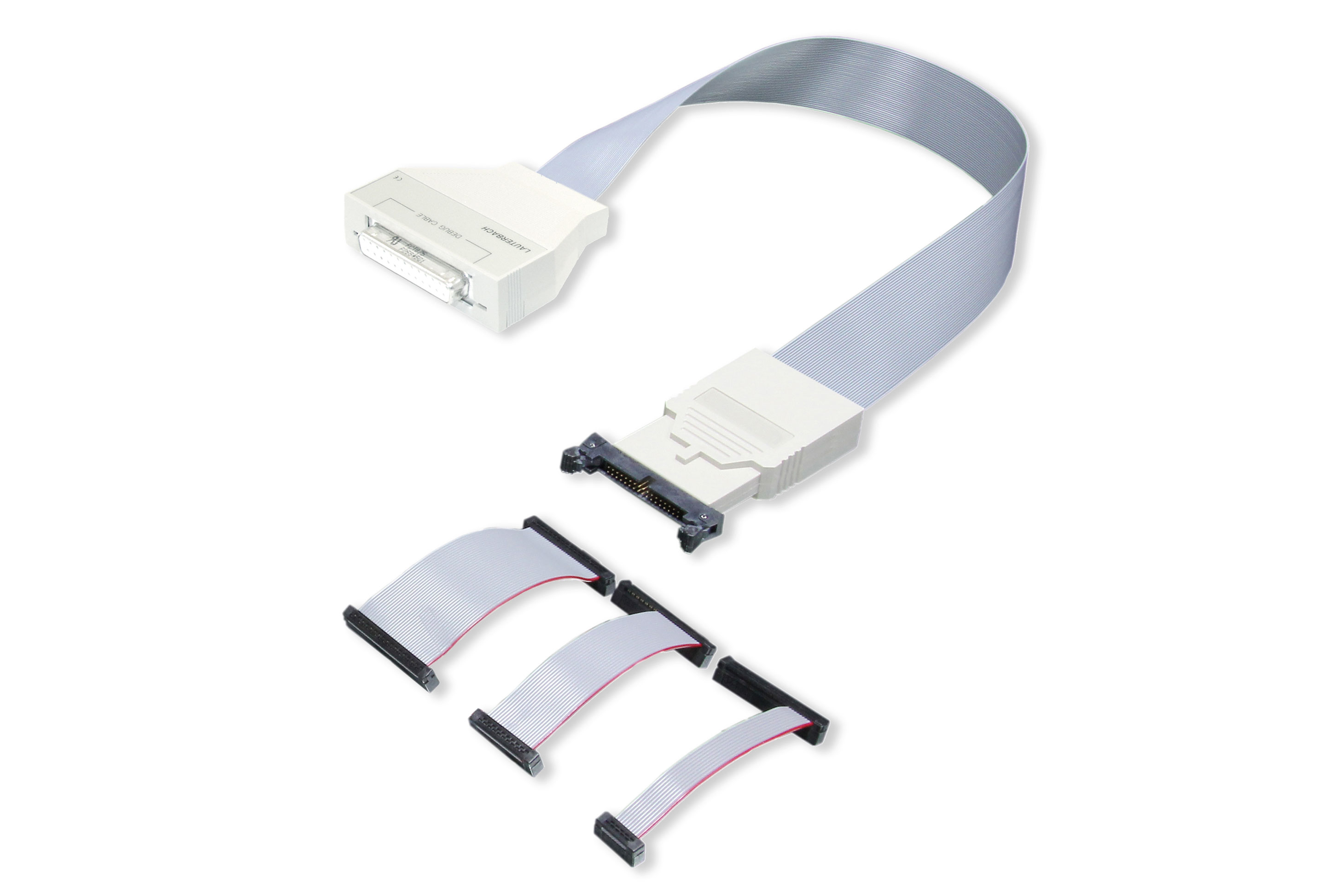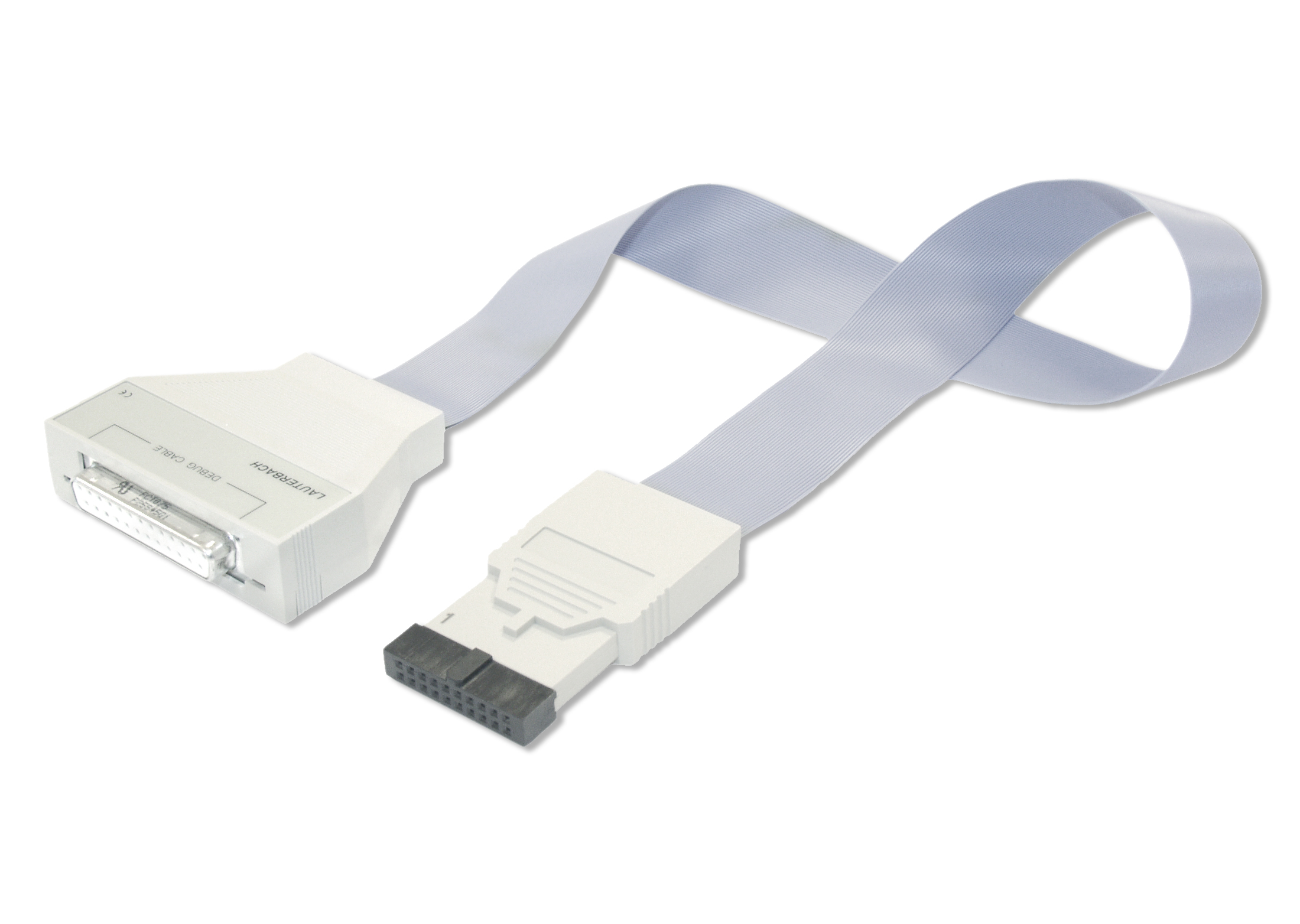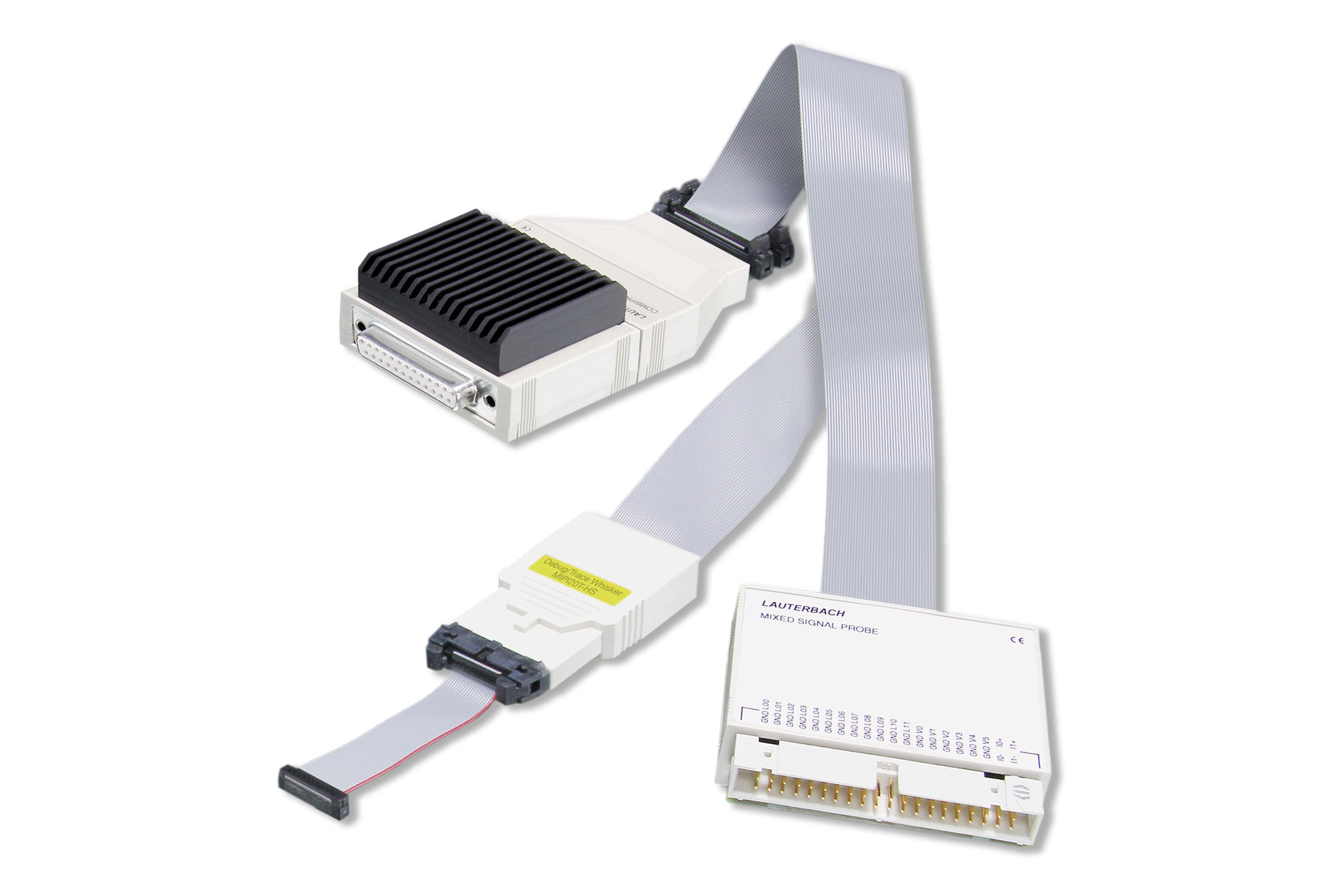PowerDebug X50
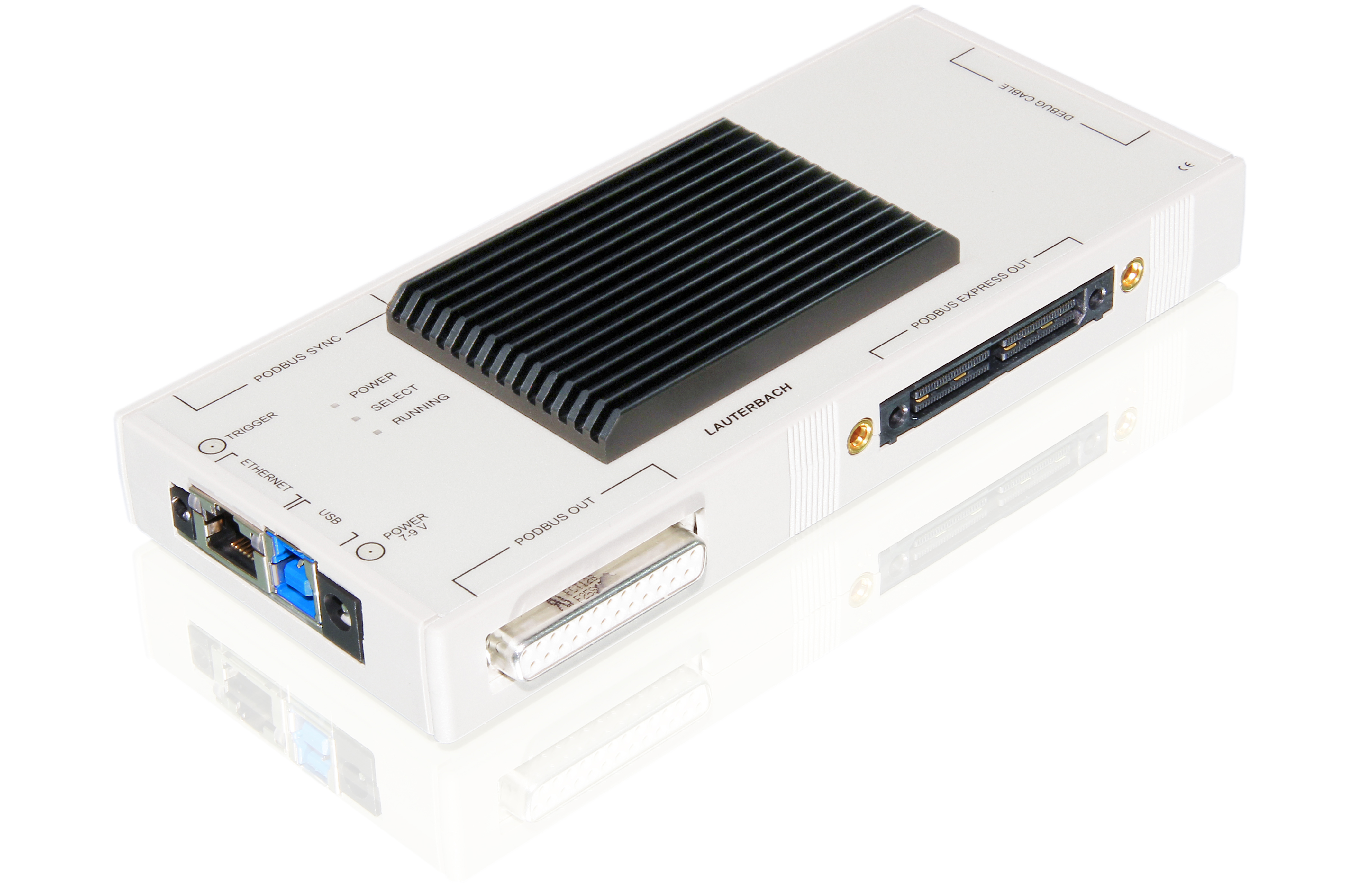
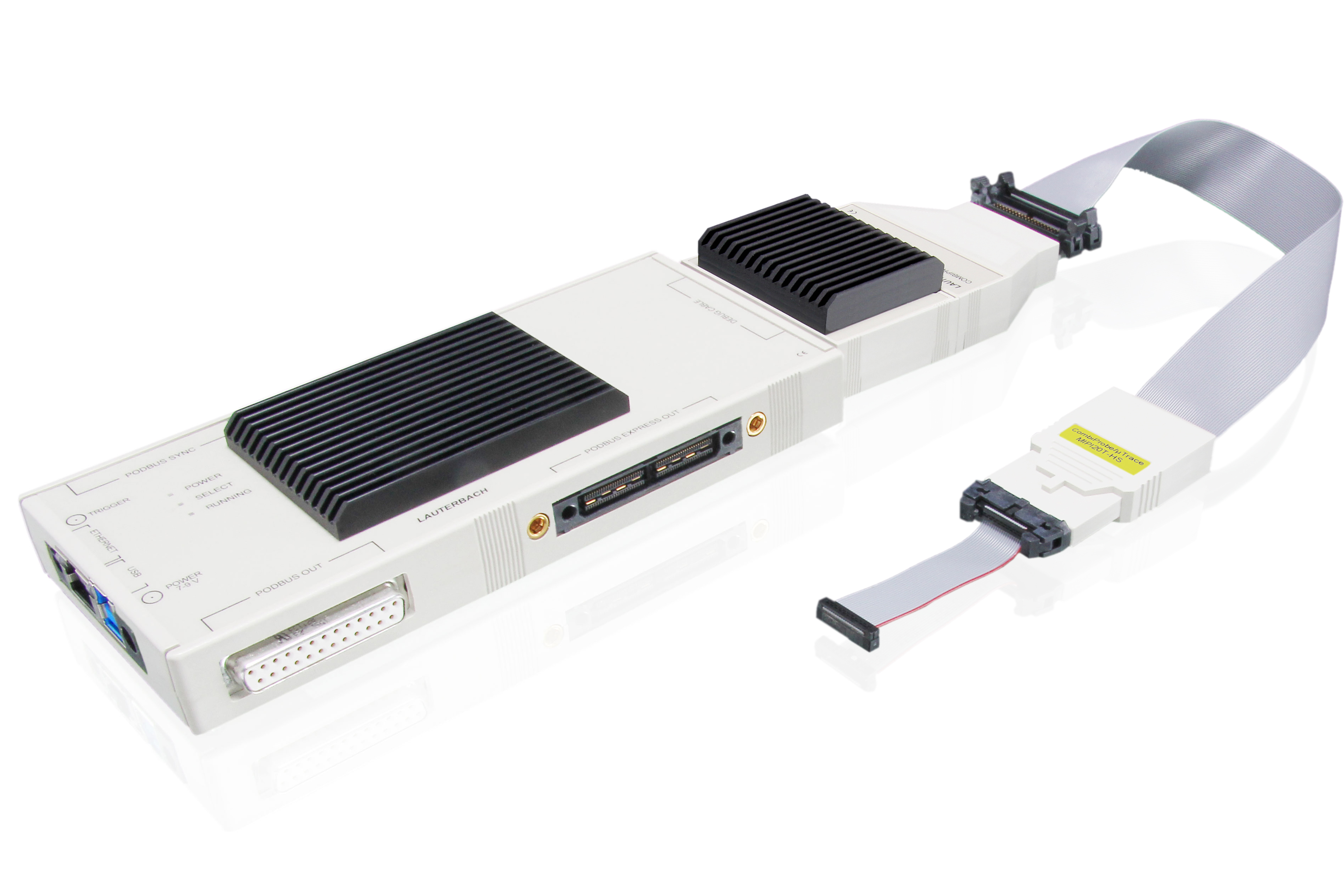
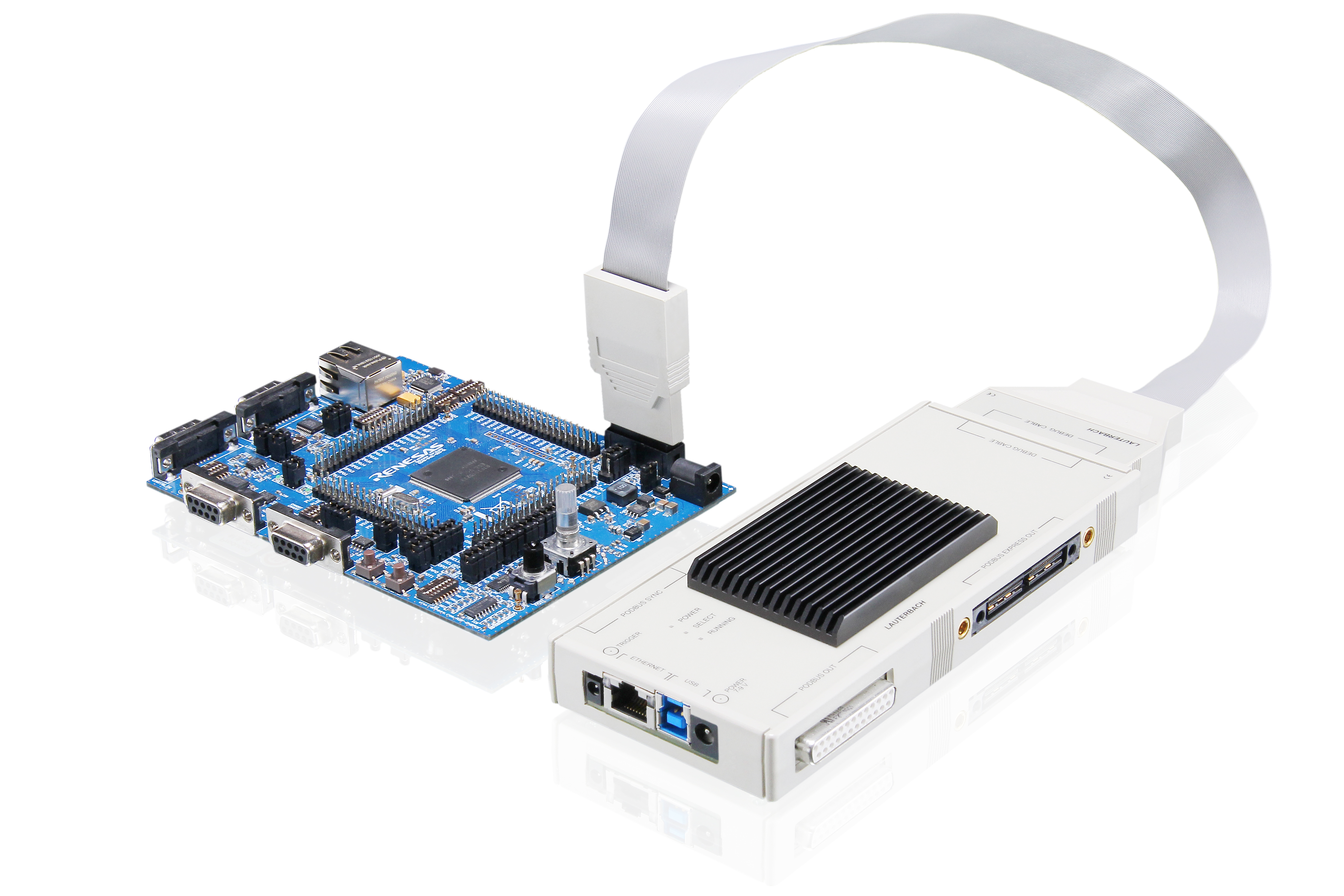
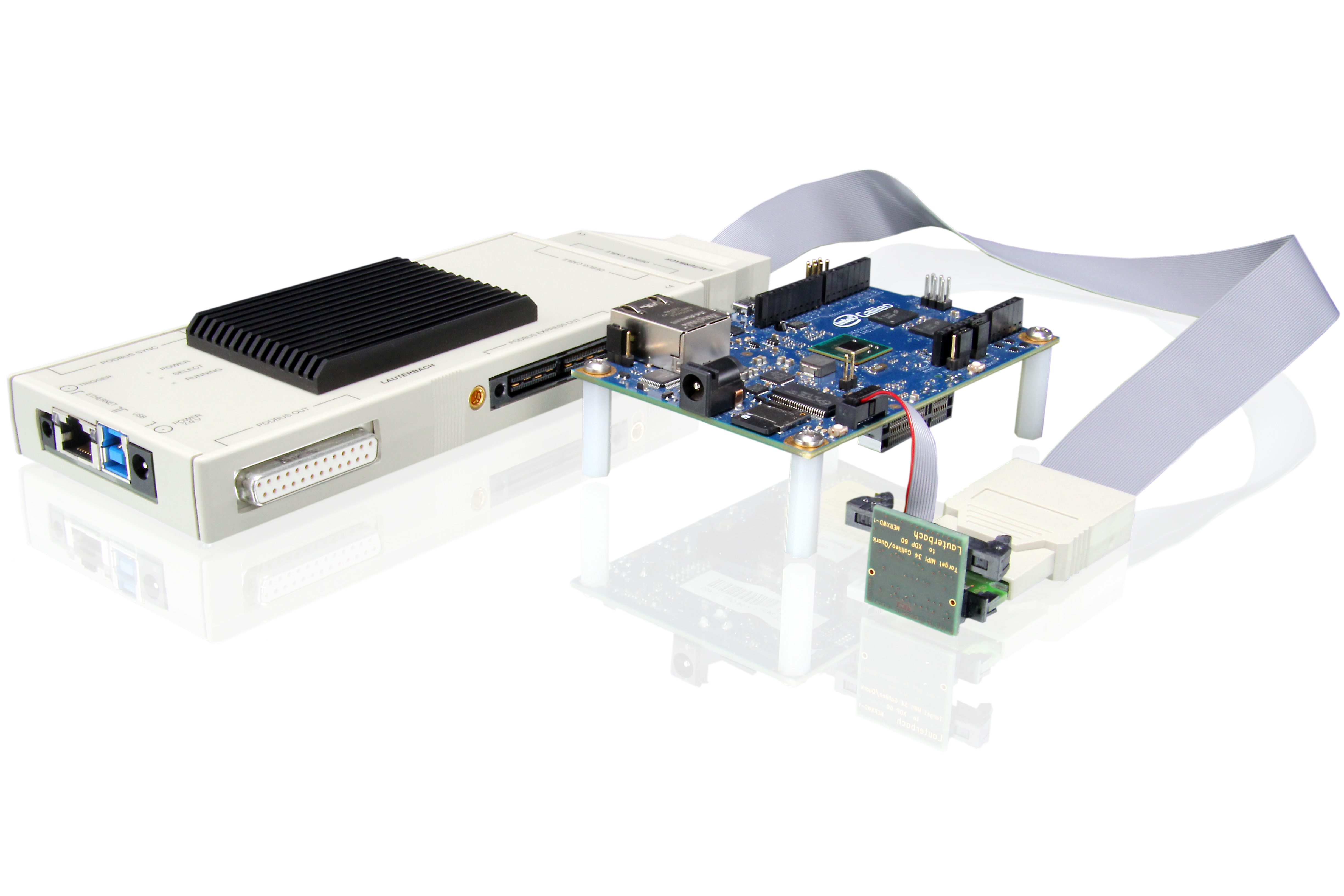




Expandable, High-performance Debugger
PowerDebug X50 is our high-performance, modular, and future-proof debug controller. It can be expanded with PowerTrace, our leading embedded off-chip trace solution, as well as our logic-analyzers. You can connect it to your PC via USB 3 or Gigabit Ethernet, making it the perfect solution for both on-site and remote debugging.
No matter what your application looks like today or in the future, the PowerDebug X50 meets all your challenges, maximizes your productivity, and ensures a valuable return on investment.
You Can Have It All
Our PowerDebug X50 is the most advanced debug tool created so far, allowing you to debug remotely and expand it by adding trace and logic analyzer modules for recording chip data and hardware signals in real-time. Flexible enough to adapt as you move from project to project and powerful enough to support our full range of trace and logic sampling tools. PowerDebug X50 is the gateway to unlimited debug capabilities meeting your challenges today and in the future.
Universal debug controller
The PowerDebug X50 base module can be configured to support any of the more than 15 000 devices from the more than 150 supported chip architectures by simply swapping the debug probe or adding a suitable license.
Unlimited multicore debugging
Use a PowerDebug X50 , with an appropriately licensed Debug Probe, to simultaneously debug all the cores on your board or in your SoC, irrespective of architecture. With synchronization of both break-points and run-time control, you will have dominion over the entire system.
Extend with trace and logic analyzers
Increase the power and features of your PowerDebug X50 as you need them by adding extension modules for processor trace and logic trace. Processor trace provides countless analysis options of the application under test, including run-time performance and code coverage. Use the power of the logic analyzers, for both digital and analog signals, to cross trigger between real-world events and software being executed as well as measure power used by the system as it runs.
Ethernet connectivity for remote operation
The PowerDebug X50 supports a high speed USB3 connection to the host as well as Gigabit Ethernet for remote access. This allows you to share your target with colleagues, place it in a secure lab, or even in another country.
A perfectly synchronized debug suite
Take control of all of your tools. Add other debug and trace modules, knowing that the PodBus interconnector will ensure consistent timestamps amongst them all. Integrate and cross-trigger other tools, such as an oscilloscope or logic analyzer, with the auxiliary I/O connector.
Super-fast debugging and low response times
Debugging large applications, running complex timing or trace analyses, or running automatic regression tests are time consuming. Even small savings add up over many iterations. The PowerDebug system reduces response times and improves upload/download speeds by placing a dedicated debug hardware accelerator close to the target and off-loading many debug decisions from the host. This makes debugging tasks magnitudes faster compared to host-based debug systems, slashing development times and costs.
Perfectly Suited for Any Target
You can connect the PowerDebug X50 to your target via a dedicated debug probe. The probe forms the target-specific part of a TRACE32 debug system and includes the license. By simply exchanging the debug probe, you can switch between different targets without the need to exchange the PowerDebug X50 unit itself.
If cores share an electrically compatible debug interface e.g., several heterogeneous cores in a complex SoC, you can license one debug probe for several core types so that all cores can be debugged simultaneously with a single PowerDebug X50 .
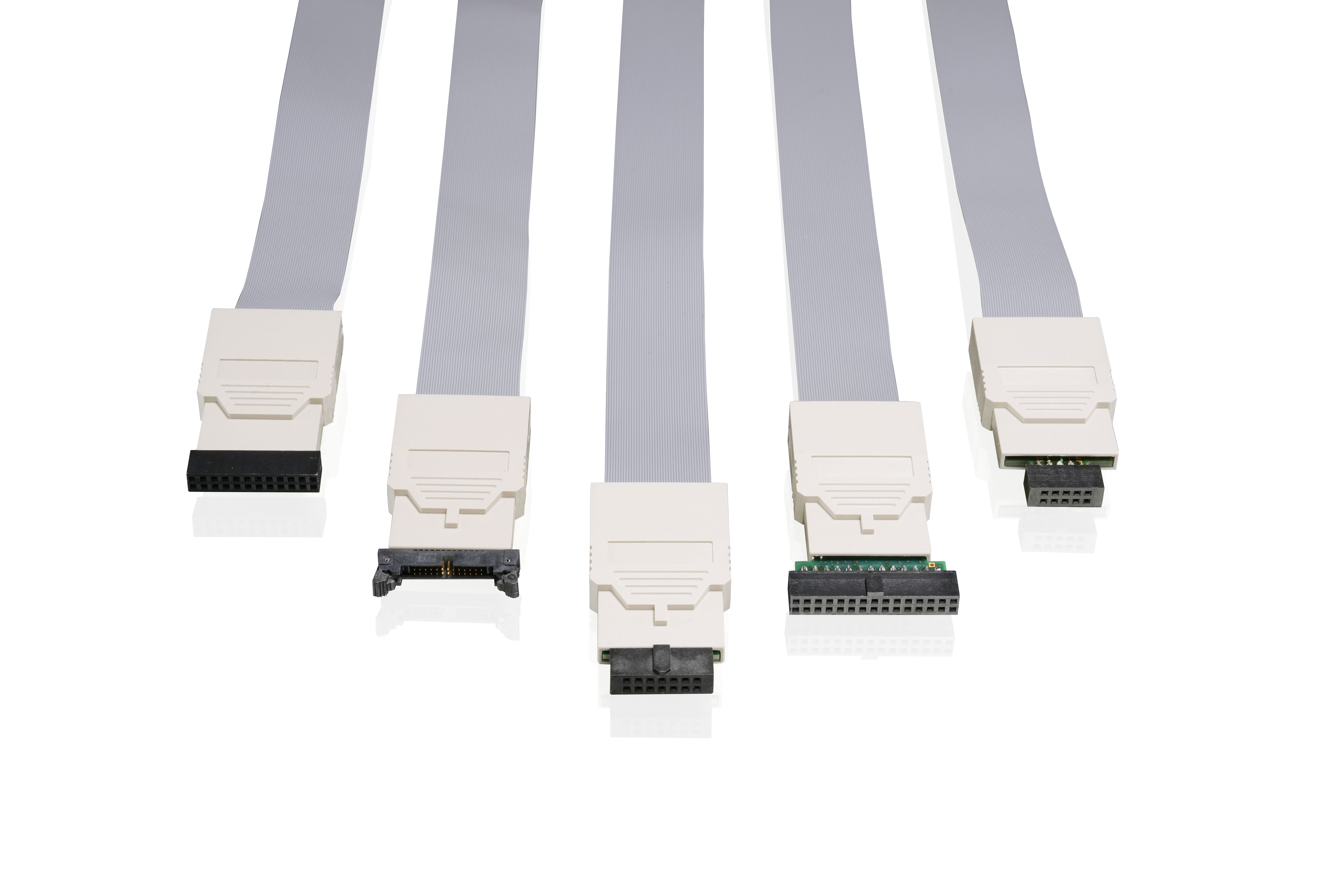
Architecture-specific Debug Probes
Specialized debug probes dedicated to specific target platforms.
Configuration Examples for PowerDebug X50
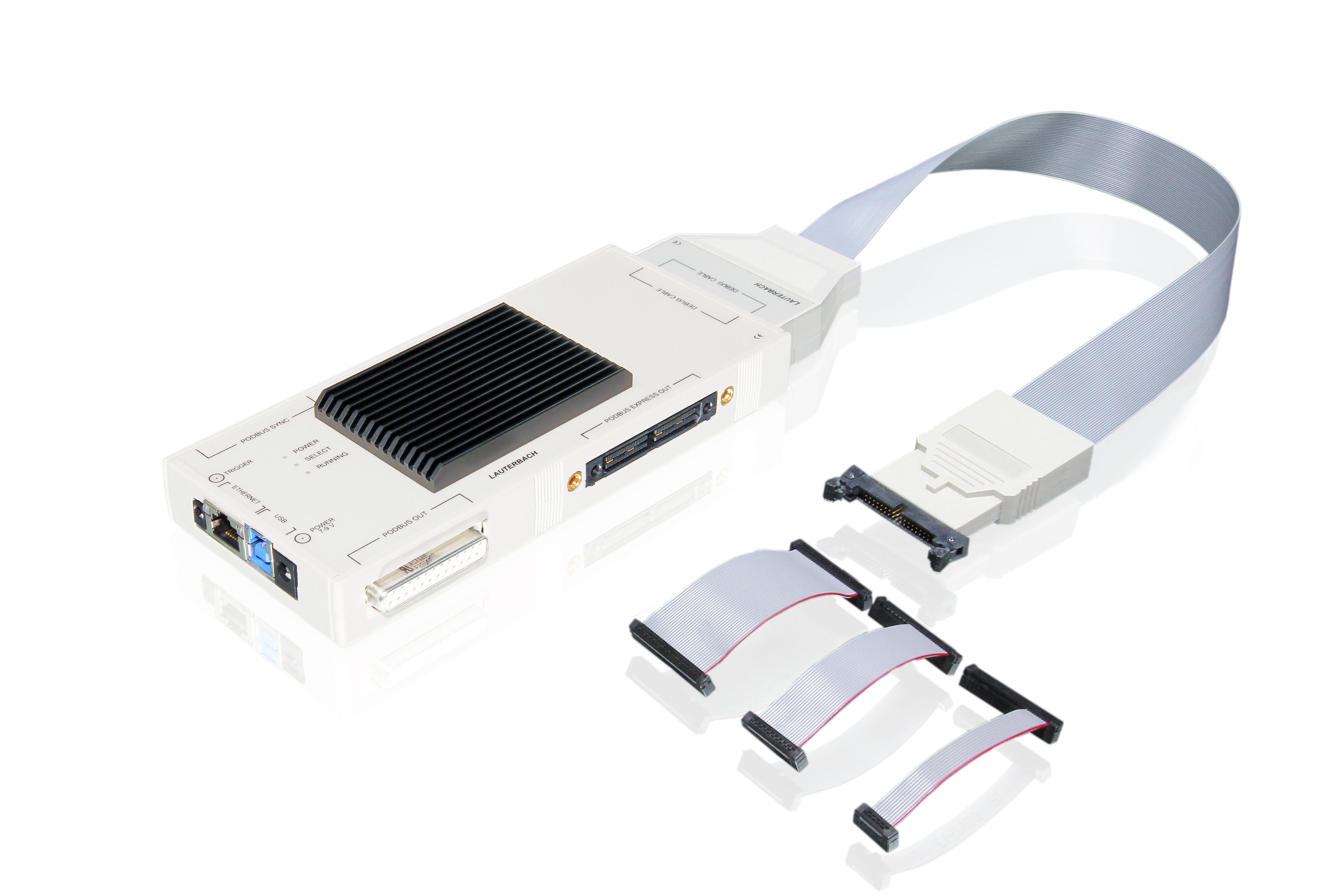
Basic Debug Configuration
For targets with a single JTAG connector, a debug system like this is used. The target device itself may have multiple cores, such as an SoC, or may have a JTAG chain with multiple devices on the board.
Products shown:
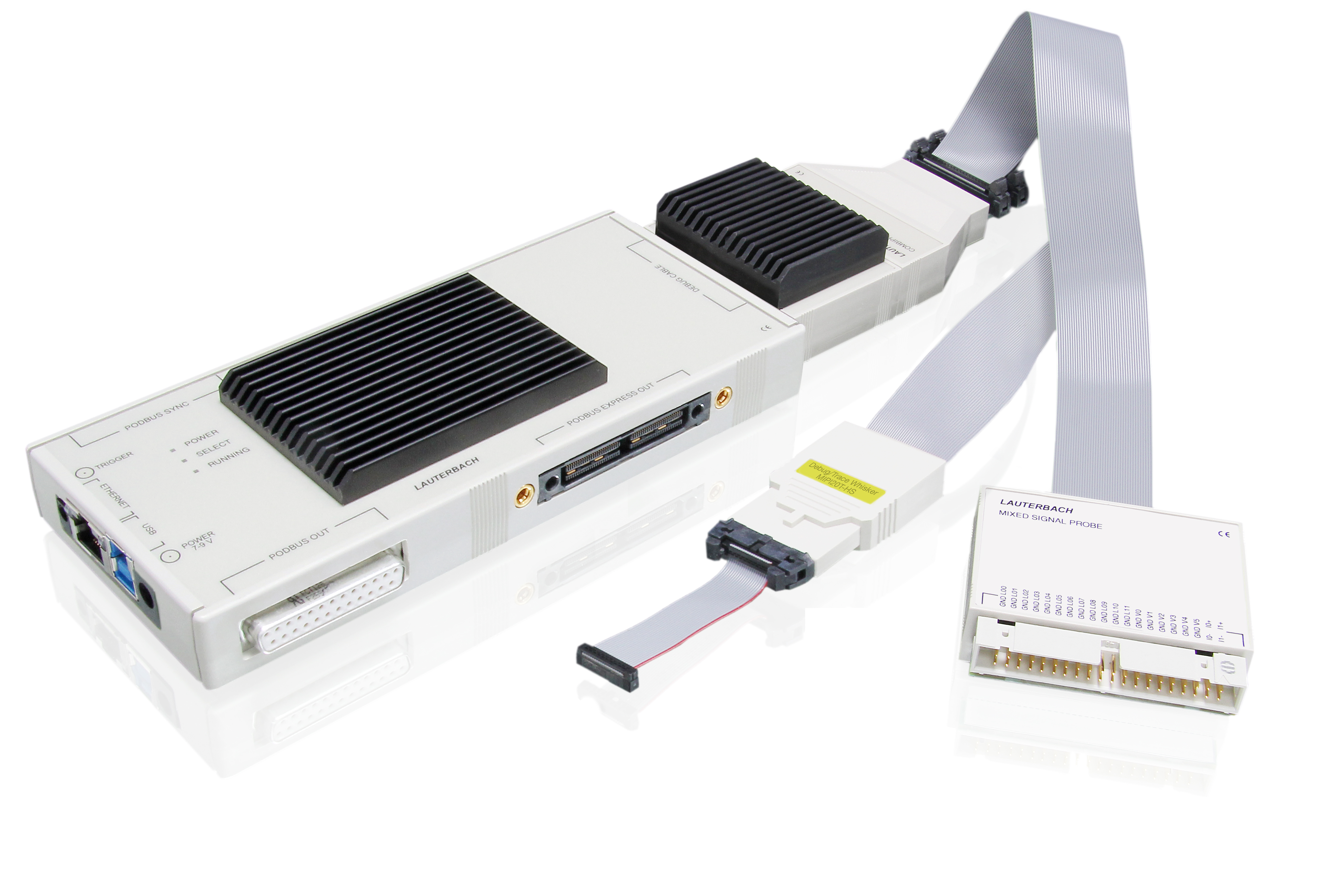
Debug & System Trace Configuration
It combines debug and trace, supporting the 4-bit ETM of a Cortex-M, the Compact Flow Trace (CFT) of TriCore SoCs, system traces like STP, STM, ITM, and others. The two multi-purpose connectors allow the addition of a Mixed Signal Probe for analyzing digital or analog signals. Alternatively, you can connect a second whisker for debugging and tracing dual-chip configurations.
Products shown:
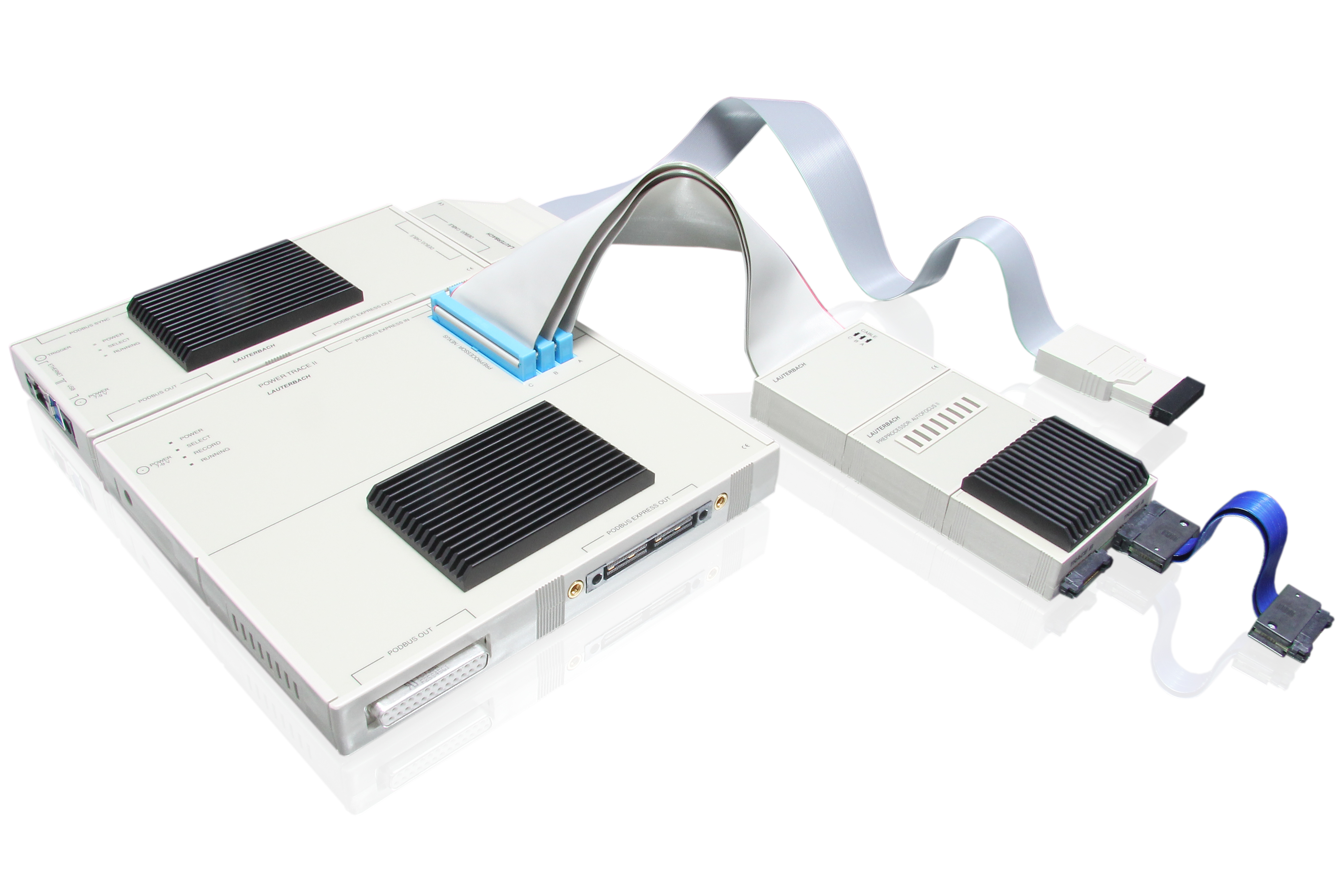
Debug & High-bandwidth Parallel Trace Configuration
Where the target provides a high-bandwidth parallel trace interface as well as a debug port, the ideal solution is to add a universal PowerTrace module and a target specific trace preprocessor. It gives you access to highly detailed run-time information about the embedded system without interfering with any of its real-time aspects. This allows you to perform a variety of analyses, including run-time performance measurements, task switch monitoring, code coverage analysis, and more.
Products shown:
- Power Debug X50
- IDC20A Debug Probe
- PowerTrace III
- AutoFocus II Trace Preprocessor
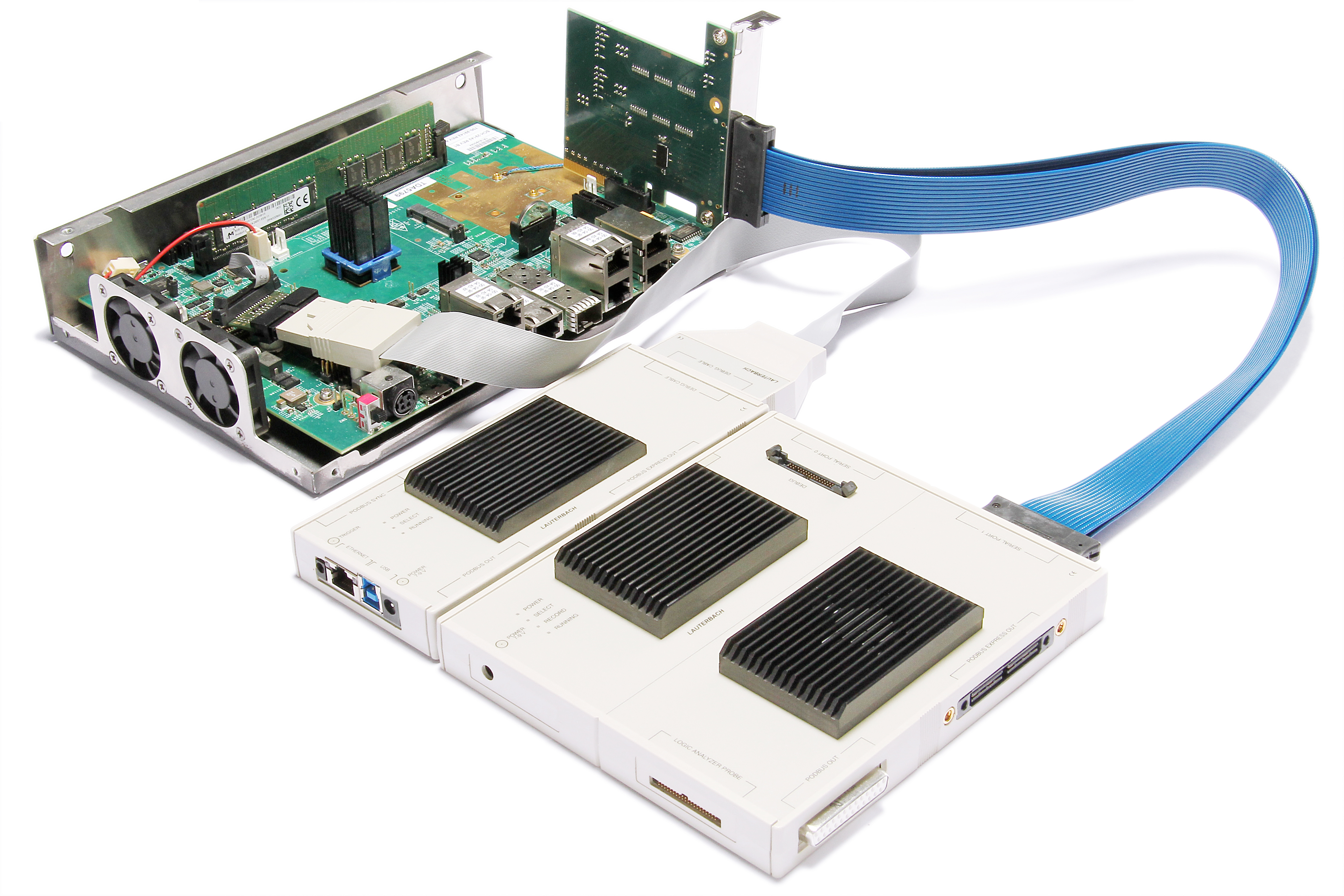
Debug & High-Speed Serial Trace Configuration
Increasingly, targets are opting for high-speed serial trace interfaces, which require fewer pins but operate at much higher clock speeds. Adding a PowerTrace Serial to your system will allow you to sample up to 8 lanes of Aurora, PCIe, or HSSTP trace, all without interfering with the real-time performance of the target. This data can be used for numerous analysis features such as runtime analysis, or code coverage.
Products shown:
Configure your solution
The best tool-configuration depends on the actual chip you are using. Search for your chip and see our recommended configurations.
Compare Debug Base Modules
This product |
|||
 |
 |
 |
|
| Product | PowerDebug X50 | PowerDebug E40 |
µTrace |
| PC Interface | USB 3 / Gigabit Ethernet | USB 3 | USB 3 |
| Voltage range | From 0.4 to 5.0 V* | From 0.4 to 5.0 V* | 1.2 to 5.0V |
| Debug Protocols | JTAG, cJTAG, SWD, SWO, DAP and many more | JTAG, cJTAG, SWD, SWO, DAP and many more | JTAG, cJTAG, SWD, SWO |
| Extension connectors | PodBus and PodBus Express | PodBus | None |
| Possible trace extensions | CombiProbe 2, PowerTrace III, and PowerTrace Serial | CombiProbe 2 | Integrated 4-bit trace support (no extensions required). |
| Possible logical analyzer extensions |
PowerIntegrator II, Mixed Signal Probe via CombiProbe 2 or PowerTrace III | Mixed Signal Probe via CombiProbe 2 | Mixed-Signal Probe |
| Trigger Connector | Out 4.4V / In 3.3V (5V tolerant) | Out 4.4V / In 3.3V (5V tolerant) | Out 3.3V / In 3.3V (5V tolerant) |
| Supported Architectures* | Over 150 microprocessor architectures | Over 150 microprocessor architectures | Arm Cortex-M or RISC-V 32 bit |
| See more | See more |
*: Depends on the debug probe used.
Request a Price Quotation
Universal debug controller of the Extended Connectivity Line (Gen 5) with 1 Gbit Ethernet (via TCP/IPv4 and TCP/IPv6) and USB 3.x Gen 1 for Windows/Linux/macOS. Can be extended via an optional PowerTrace trace module and PowerIntergrator logic analyzer. Requires a TRACE32 Debug Cable or CombiProbe. Requires TRACE32 software release R.2022.09-SP2 or newer. Requires a PC or Mac running Windows, Linux or macOS.
Any Questions?
With over 4 decades of industry leadership, our expert engineers are on-hand to help you. If you want advice about our products or which configuration is best for you, please contact our Sales Engineers. If you want help with your Lauterbach system, please contact our Engineering Support Team.

